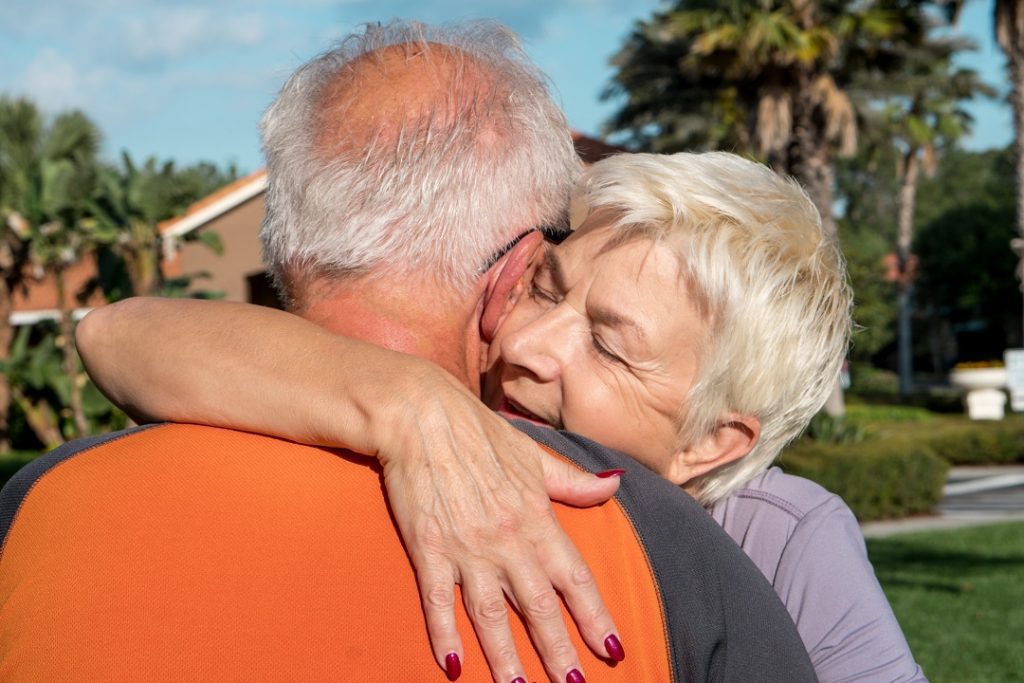Bill’s wife Jo was recently diagnosed with dementia. They are a couple in their 60’s and live a full and active life together. Bill noticed changes in Jo’s behaviour and suggested Jo, should go to the GP. Jo was reluctant but during a routine appointment, Bill took the chance to raise his concerns.
Like many other people, Bill associated dementia with words like ‘despair’, ‘worry’, ‘anxiety’, ‘stress’, and ‘loneliness’. However, since Jo’s diagnosis, Bill feels he now has a much more positive view about dementia. He now understands some of the changes Jo is going through, and how he can give her the best support possible. He also realises that although their life together is different now, they do still have a life together which they should enjoy to the full.
Bill shares some of the things he has done to adjust to his life supporting Jo since her dementia diagnosis.
Living in the moment and enjoying life
Although there are appointments to attend and everyday jobs to get done, it is important to take time to do things they enjoy such as walking, eating out and visiting friends and family.
We love to visit our great niece and great nephew who also love play dates with Uncle Bill and Auntie Jo. But most importantly talking with not to or at but with one another”.
Trying to be a part of Jo’s world
Instead of trying to persuade Jo to remember things or understand things in the same way he does, Bill tries to see a situation from Jo’s point of view. For example, if she is anxious and upset about going out for a meal with friends, they have friends over for dinner instead. This way Jo can feel relaxed and comfortable in her own home and they still get to spend time with their friends.
The important thing here is to ensure it’s only one or two people, more than that and anxiety sets in. They always loved to go to the theatre and cinema, but venues contain too many people and are loud and dark. TV subscription services now mean we can still enjoy films and plays but do so together in our own home. I even try to simulate the experience and makes popcorn, hot dogs and ice cream. We can hold hands on our own back row sofa!”
Turning conversations around to tackle talking about the future
Talking about future care can be upsetting. Instead of talking about how Jo may get worse and may need more care over time, Bill tells Jo how he wants to be cared for as he gets older or if he becomes unwell. That way they can both share their fears and feelings and make plans together. Bill thinks it is important to understand the wishes of each other and put practical considerations into place.
The elephant in the room is always care homes and we have agreed never to promise each other it will never happen. I think that is the start of deep routed guilt and anxiety should it need to occur which makes that step far more distressing than it needs to be”.
Getting others to recognise Jo for who she is – not just her diagnosis.
It is upsetting for Bill and Jo when people focus on what Jo can no longer do or how she has changed. Bill reminds people that Jo is an intelligent, kind and caring person who is able to make decisions about her own life.
Dementia may change Jo’s behaviour but not her inner personality, be patient and look for it. Jo knows what she likes to see, do, eat and talk about it and who she does those things with. Please don’t ask me, ask Jo. Don’t talk to me about Jo as if she isn’t there or look at me and not her. If she needs help to answer I’ll be there as support but keep looking at Jo. When I speak please don’t avert your focus from Jo”.
Bill is passionate about challenging negative views about dementia and does so every time it happens. He wants to encourage everyone from individuals to big organisations, to think more positively about dementia, and focus on what can be done, rather than what cannot be done. Bill says,
Change is long overdue but together change starts today”.






